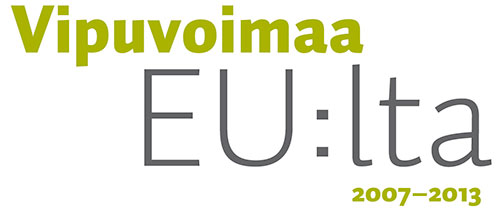
Assignment cards
HEALTH COMPETENCE 4/6Here you will find assignments related to maintaining your health. You can reflect on nutrition, sleep, mental well-being, substances, sexual health, traffic behaviour, relationships, and all the choices you make for your health every day.
The objective is to reflect on your choices and lifestyle that affect your well-being, and maybe do a huge favour for yourself as well: a decision to take care of your health.
Well-being is about making small decision that have a huge positive impact on your life.
Mental well-being
Disappointments
Reflect on how you deal with hardships. You do not have to welcome them enthusiastically, being disappointed is okay and you are bound to be disappointed sometimes. Nevertheless, how you get back on your feet afterwards has a lot to do with your attitude. Luckily, not everything in life can be predicted.
Assignment: Conduct a poll in pairs on work or school-related disappointments among your friends (You can also interview the teachers). First, write the answers on paper and then fill out the attached summary form.
If you do not want to send the assignment card by email, please note that you can also print or copy the finished card.
Safeguards of mental well-being
Mental well-being resources accumulate when you take care of your coping and do things you like. Mental well-being can be promoted by strengthening the safeguards. Safeguards are, for example
- Exercise
- Good friendships
- Family and friends
- Nice hobbies
- Going to school and studying
- Liking yourself
- Talking about things
- Identifying and expressing your own feelings
- The ability to solve problems and difficult things
- The ability to dare and know how to seek help when necessary
- Safe growing environment
Explore the Hand of Mental Well-being.
Reference:
Mielen hyvinvointi ja Mielen hyvinvointi -levittämishanke, Keskuspuiston ammattiopisto & MIELI Mental Health Finland, 01.03.2009 – 30.04.2014
Erkko & Hannukkala 2013, Mielenterveys voimaksi, MIELI Mental Health Finland




At the crossroads of choices
You make repeated choices that affect your well-being every day. Choices are a good indication of what you value: for example, on what you spend most of your time and what things do not get done. You should consider how these choices affect your well-being.
You should stop and think about your motives behind the choices. Your values guide the choices. Sometimes you also make choices by following others, according to friends’ opinions or just by habit. Do you make choices in life according to what you think is good and in which direction you want your life to go? Do you spend your time doing things that strengthen your well-being and support your good mood? Explore the Jungle of Choices (Valintojen viidakko, currently only available in Finnish) model. PDF files opens in a new window.
If you do not want to send the assignment card by email, please note that you can also print or copy the finished card.
Reference:
Erkko & Hannukkala 2013, Mielenterveys voimaksi, MIELI Mental Health Finland

Good self-esteem
Indicators of a good self-esteem are:
- the feeling that you are good in many things
- you trust yourself
- self-appreciation
- appreciation of your own characteristics
- the feeling that your life is unique and important
- the ability to appreciate others
- social flexibility and adaptability
- independence in managing your own life
- independence from the opinions of others
- the ability to tolerate failures and disappointments.
If you do not want to send the assignment card by email, please note that you can also print or copy the finished card.
Reference:
Erkko & Hannukkala 2013, Mielenterveys voimaksi, MIELI Mental Health Finland
www.mieli.fi

Emotional or insensitive?
Feelings are necessary and important for humans. Every feeling is needed. However, you should not get stuck in one emotional state or have to exclude your feelings in order to survive. You should stop to listen and recognize your own thoughts, feelings and ways to act. You should learn how to process your feelings.
Emotional skills are necessary in many of the things we do every day. Sometimes they are a result of intense practicing, sometimes they have been characteristic to us since childhood. However, all these skills can be developed at different stages of life and throughout life.
You can think about emotions using the Ferriswheel of emotions model.




Emotion images
Emotional skills are part of mental well-being and can be strengthened by practicing. Feelings are allowed and you can learn to express them constructively. Identifying and expressing feelings enrich your life, make life easier and help to understand others.
Feelings are constantly involved and they are individual, not everyone feels the same way in the same situations. Identifying feelings is not always easy. Did you know that the original purpose of feelings was to help people survive?
You can better control your feelings by recognizing your feelings and behaviour. You can understand yourself as well as other people when you are able to say aloud what the feeling means to yourself. For example, when you get angry, you can consider what really made you angry about the situation and whether it really is such a big deal that it is worth wasting your energy.
If you do not want to send the assignment card by email, please note that you can also print or copy the finished card.
Reference:
Erkko & Hannukkala 2013, Mielenterveys voimaksi, MIELI Mental Health Finland

Social networks
Your social network consists of people who are close to you and who are part of your life. The network includes, for example, family, friends, relatives, and study and work colleagues. Each person’s social network is different and it changes alongside life. For example, childhood friends are replaced with new acquaintances when you meet new people while studying and working. Other people become closer and others become more distant over time.
The support from people around us has an impact on our well-being. Support from your loved ones helps to deal with and overcome many difficult situations. Loved ones are a resource that helps you overcome many challenges. Nyytin Elämäntaitokurssi® (available only in Finnish)
If you do not want to send the assignment card by email, please note that you can also print or copy the finished card.


Nice moments
You do not have to constantly be delighted over everything and smile. However, it is advisable to guide your brain to find nice things in everyday life whenever possible. The overall vibe improves as you practice to discover the small good things in your everyday life. Positive attitude towards your own life also helps you through problems.
If you do not want to send the assignment card by email, please note that you can also print or copy the finished card.

Relexation
You should learn to relax in the midst of hurry, life situation and worries. Relaxation is worth it because
- It calms before an exciting situation
- It refreshes in the middle of a hectic day
- It helps in managing feelings and thoughts
- It helps to fall asleep.
- Try one of the following three means to relax.
A) Quick relaxation during the school or working day
- Try breathing calmly for a moment when you feel stressed about everything during the day.
- Take a deep breath. Imagine you are inhaling good mood. Imagine the stress flowing out of your mind when exhaling.
- Repeat five times.
- You can do the exercise anytime, anywhere.
B) Relaxation before an exciting situation:
- Before relaxation, think about the situation that you want to focus on in a relaxed state, such as the demonstration of your professional skills.
- Close your eyes. Inhale and exhale. Relax.
- Once you get into a relaxed state , imagine yourself in the situation that makes you nervous.
- Process how the situation progresses in your mind. Imagine how you work confidently and relaxed.
- Go through the situation a few times.
- Processing the situation a few times will provide you with a recollection of proficient actions that helps you in the actual situation.
C) Tense or relaxed?
You can learn to recognize the difference between tension and relaxation with the next exercise.
- Sit on a chair with your feet and hands down.
- Inhale so that your lungs are full of air.
- Tense yourself completely.
- Exhale so that your lungs are completely empty.
- Relax yourself completely.
- Note the difference between tension and relaxation.
Nyyti.fi sekä Nyyti ry:n Elämäntaitokurssin opas (Nyytin Elämäntaitokurssi®)
